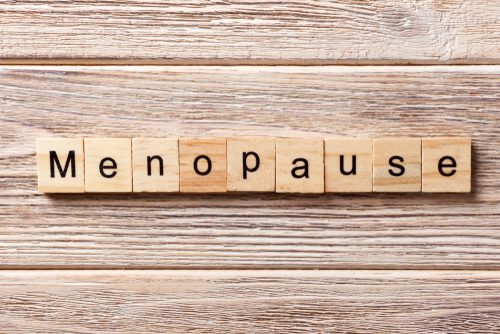How Menopause Can Affect Your Body and Mind
Even though menopause typically happens in women in their late 40s or early 50s, it’s still possible to get symptoms of menopause much earlier or later than this. The effects of menopause vary from woman to woman, and some people may not experience any signs at all during menopause. This article will explore what you can expect if you are going through the process of menopause, as well as how to avoid some of the more negative side effects of going through menopause.
Hot Flashes

One of the most prominent symptoms of menopause is hot flashes. Hot flashes are sudden, intense bursts of heat that can last from a few seconds to a few minutes. In addition to being uncomfortable, hot flashes can also lead to night sweats, which is when a person sweats at night for long periods of time or in short bursts. It’s important to talk with your doctor about the best treatment plan for you if you’re struggling with this symptom because there are medications that can help relieve it. You may not be able to get relief overnight but medication should help reduce the frequency and severity of these painful symptoms. If you have cramps, try taking an over-the-counter medication like ibuprofen before going to bed and see if that helps lessen the pain.
As always, make sure to drink plenty of fluids as well. Fluid intake will prevent dehydration and will help ease the discomfort caused by cramps. If you are trying to avoid caffeine due to other health reasons such as heart disease, ask your physician what other beverages might be good substitutes. Some people find that they prefer water while others find sports drinks provide them with some relief. Whatever feels right for you is likely what will work best during menopause too!
Sleep Problems
 Insomnia is a common sleep disorder that can be caused by many different factors. Some of the most common causes of insomnia include stress, depression, pain, certain medications, or certain medical conditions. Menopause can also cause insomnia. Hormones are important for regulating sleep cycles and when there is an imbalance in hormones due to menopause, it can cause insomnia. The symptoms of insomnia may include waking up frequently during the night or waking up too early in the morning without feeling refreshed. Irritability, anxiety, depression are also related to insomnia as well as difficulty concentrating and headaches. Insomnia can be treated!
Insomnia is a common sleep disorder that can be caused by many different factors. Some of the most common causes of insomnia include stress, depression, pain, certain medications, or certain medical conditions. Menopause can also cause insomnia. Hormones are important for regulating sleep cycles and when there is an imbalance in hormones due to menopause, it can cause insomnia. The symptoms of insomnia may include waking up frequently during the night or waking up too early in the morning without feeling refreshed. Irritability, anxiety, depression are also related to insomnia as well as difficulty concentrating and headaches. Insomnia can be treated!
A few things you can do include practicing good sleep hygiene, getting help from a doctor if you have other underlying health issues, and making sure your bedroom environment is conducive to sleep. One way to ensure that your bedroom environment is conducive to sleep is to make sure it’s dark at bedtime. Be careful about using electronics close to bedtime because they emit blue light which can disrupt natural sleeping rhythms. If you want some help with this, there are apps available on smart phones such as flux which reduce the amount of blue light emitted while screen-time is being used and automatically returns brightness levels closer to daylight once users finish their session (I like this one). You could also try ear plugs or blackout curtains!
Changes in Appetite
 Food consumption is one of the many changes that can happen during menopause. Some women may experience a decreased appetite, while others might have an increased appetite. It is important to find a balance in order to keep your health in check. Eating too little can lead to malnutrition, and eating too much can lead to obesity. A good rule of thumb is to consume between 1200-1500 calories per day. Healthy food choices should include a variety of fruits, vegetables, whole grains, low fat dairy products and lean protein. Alcohol intake should be limited or avoided completely. Drink lots of water every day (8 glasses), as well as coffee or tea without sugar or cream.
Food consumption is one of the many changes that can happen during menopause. Some women may experience a decreased appetite, while others might have an increased appetite. It is important to find a balance in order to keep your health in check. Eating too little can lead to malnutrition, and eating too much can lead to obesity. A good rule of thumb is to consume between 1200-1500 calories per day. Healthy food choices should include a variety of fruits, vegetables, whole grains, low fat dairy products and lean protein. Alcohol intake should be limited or avoided completely. Drink lots of water every day (8 glasses), as well as coffee or tea without sugar or cream.
Don’t forget about getting enough exercise! Regular physical activity will help manage weight, boost mood, improve sleep quality and reduce risk for heart disease. As for when to eat; it’s best not to skip breakfast, which sets the tone for healthy habits all day long. Studies have shown that people who miss breakfast are more likely to overeat later in the day. If you are feeling ravenous before lunchtime, try snacking on fresh fruit or veggies rather than candy bars or chips. Choose unprocessed foods over packaged items whenever possible because these contain higher amounts of nutrients like fiber, vitamins and minerals essential for overall health.
Low Energy
 You might find that it’s harder to get up in the morning, and you can’t seem to stay awake for long periods of time. A lack of sleep could also lead to irritability, anxiety or depression. You may experience hot flashes or night sweats that disrupt your sleep even more. And while they’re not all bad, these symptoms can make you feel tired during the day too. Eating a healthy diet with protein is important for energy levels. Stress Management: Stress is a big contributor to hormonal changes, and as we know from our previous post, there are plenty of reasons why someone might be stressed out at this point in their life. If you’re feeling overwhelmed with responsibilities, try learning some techniques like meditation or deep breathing to help manage those feelings. Additionally, if we keep ourselves busy we have less time to think about the things that cause us stress. Taking care of yourself by finding ways to relax is key when it comes to managing stress levels!
You might find that it’s harder to get up in the morning, and you can’t seem to stay awake for long periods of time. A lack of sleep could also lead to irritability, anxiety or depression. You may experience hot flashes or night sweats that disrupt your sleep even more. And while they’re not all bad, these symptoms can make you feel tired during the day too. Eating a healthy diet with protein is important for energy levels. Stress Management: Stress is a big contributor to hormonal changes, and as we know from our previous post, there are plenty of reasons why someone might be stressed out at this point in their life. If you’re feeling overwhelmed with responsibilities, try learning some techniques like meditation or deep breathing to help manage those feelings. Additionally, if we keep ourselves busy we have less time to think about the things that cause us stress. Taking care of yourself by finding ways to relax is key when it comes to managing stress levels!
Eat foods rich in calcium to prevent bone loss (try milk, yogurt, cheese) because one of the major side effects is osteoporosis. Exercise helps reduce mood swings and weight gain associated with menopause. If you notice any other symptoms such as irregular menstrual cycles, vaginal dryness, problems sleeping or remembering simple words, talk to your doctor right away. It might be something more serious than just menopause; but getting a diagnosis will give you peace of mind!
Memory Loss
 PMS is typically the first indication of menopause, with periods becoming less regular and menstruating less often. Some women also experience mood swings, anxiety, irritability, or forgetfulness during this time. These symptoms are typically temporary. However, it can be difficult to pinpoint if they’re due to hormones or other factors. In some cases, these symptoms may signal the onset of other conditions like Alzheimer’s disease. It can be helpful to talk with your doctor about whether you should start seeing a psychologist, neurologist, or endocrinologist. It’s important not only to keep track of how your body is reacting but how your brain feels too.
PMS is typically the first indication of menopause, with periods becoming less regular and menstruating less often. Some women also experience mood swings, anxiety, irritability, or forgetfulness during this time. These symptoms are typically temporary. However, it can be difficult to pinpoint if they’re due to hormones or other factors. In some cases, these symptoms may signal the onset of other conditions like Alzheimer’s disease. It can be helpful to talk with your doctor about whether you should start seeing a psychologist, neurologist, or endocrinologist. It’s important not only to keep track of how your body is reacting but how your brain feels too.
There is evidence that suggests that in addition to regulating estrogen levels, progesterone plays a key role in memory function. Women who suffer from severe forms of dementia such as Alzheimer’s often have lower levels of both estrogen and progesterone than their peers. If hormonal changes are making it difficult for you to think clearly, speak cogently, or sleep well then seek out additional support through therapy and/or medication.



